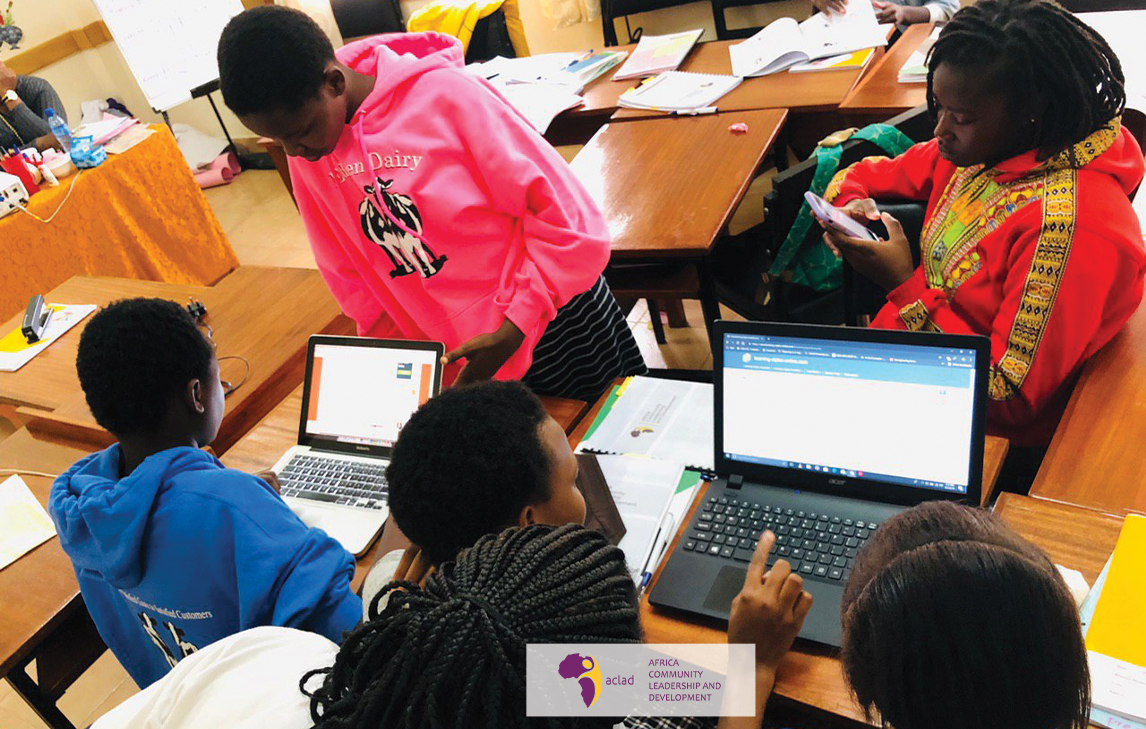BUILDING ACCESS TO LIFE-LONG LEARNING THROUGH DIGITAL LITERACY

Despite Kenya’s regional technological dominance, not all learners in the country have access to digital learning and literacy tools due to a range of reasons such as income inequalities, limited or no access to electricity for some segments of the population. Children in rural areas are at particular disadvantage and many do not have access to opportunities for computer skills development from an early age, which means that they are ill-prepared for tertiary education, other vocational opportunities and life-long learning. This digital divide acts as a shortcoming that could trap them in a cycle of poverty and could increase risk of child marriage, unplanned pregnancies and socially destructive behavior like gang involvement.
Armed with this information, ACLAD began a digital literacy initiative through which we strive to create comprehensive learning opportunities for most at risk and vulnerable boys and girls in our project sites. We help children become wise digital citizens, prepared for further education, vocational training, or trade. Digital literacy[1] is the ability to use information and communication technologies (ICT) to find, evaluate, create, and communicate information, requiring both cognitive and technical skills.
Since the advent of the internet as a communication medium there has been a proliferation of information resources found on a myriad of websites and blogs. This presents a problem to students who, like other information seekers, look to the internet as a major information resource. This creates the need to build know-how in finding and consuming digital content as well as creating, communicating, and sharing information. ACLAD is working closely with sponsors and other well-wishers to ensure that the sponsored children in our programs have community safety nets as they explore eLearning through digital platforms. In June 2020, we distributed internet-enabled mobile phones to the sponsored children to aid them continue with their studies amid the corona virus pandemic when schools are closed. We are enhancing access to eLearning and other learning resources including teaching support as well as the digital literacy skills needed by children in rural Kenya under our child sponsorship program.
Digital literacy skills for children include understanding internet safety, using strong passwords, knowing the dynamics of what to share and what not to share especially on social media and the dangers of cyber-bullying. These skills also go beyond seeking information for classroom use to life-long general information and knowledge. To partner with us as we strive to enhance learning resources and teaching support as well as make strides towards digital literacy for vulnerable children in Kenya, contact our team through info@aclad-hq.org
Catherine Muteithia
ACLAD Media Consultant
[1] The American Library Association (2019) Digital Literacy-Why Does It Matter https://www.renaissance.com/2019/02/08/blog-digital-literacy-why-does-it-matter/#:~:text=The%20American%20Library%20Association%20(ALA,both%20cognitive%20and%20technical%20skills.%E2%80%9D

Very informative blog post. Really looking forward to read more. Great. Ronnica Raymond Laud